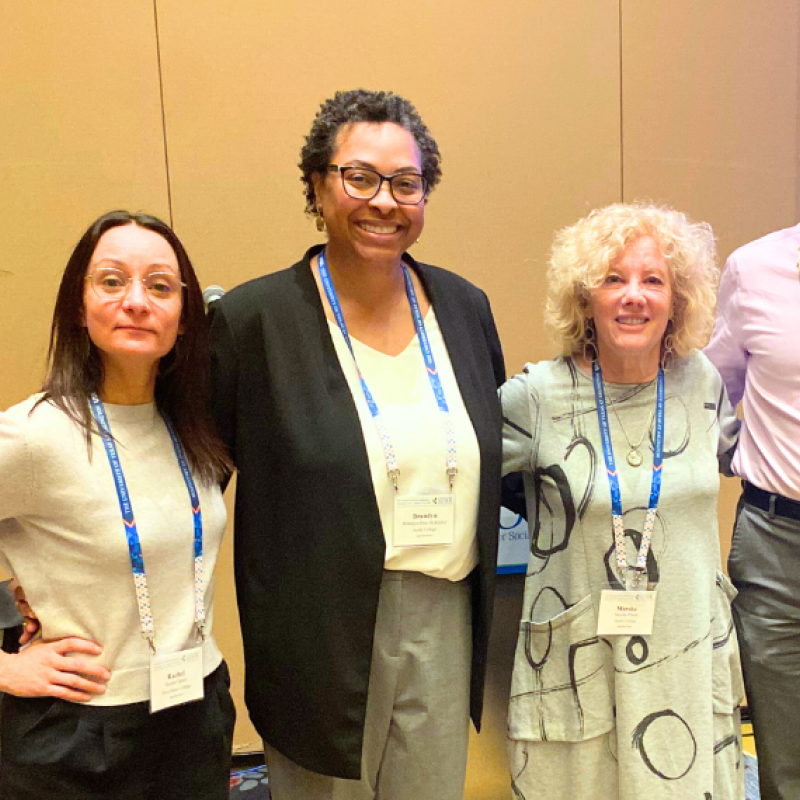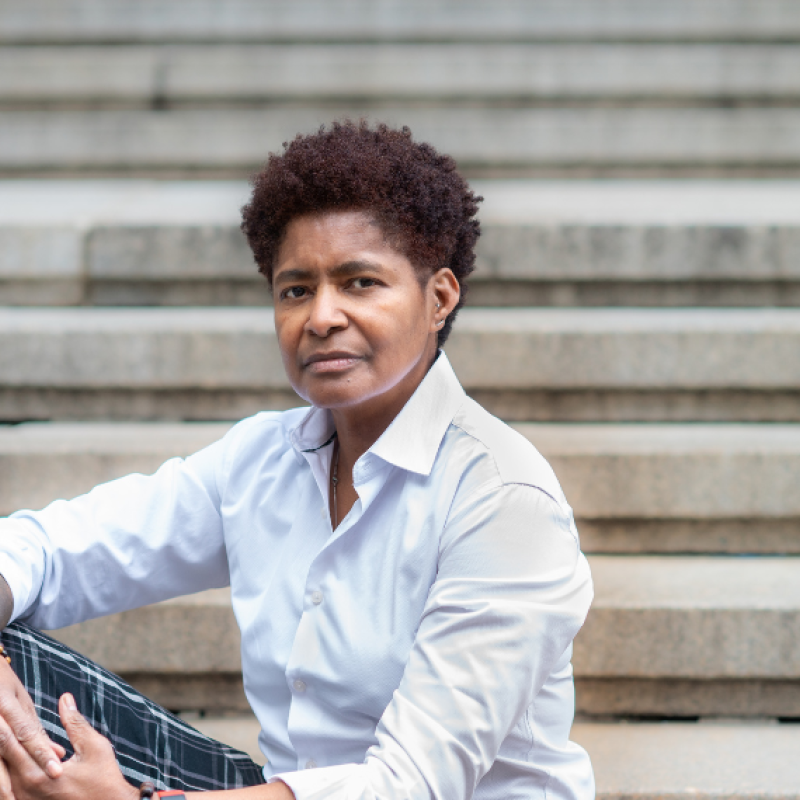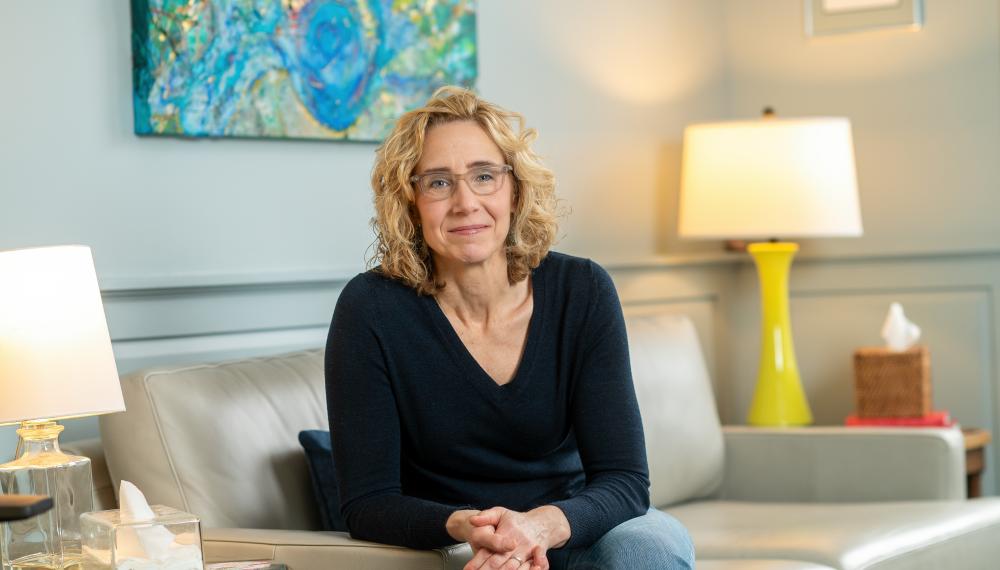
Talk about sex? Yes! As a sex and couple therapist, Caroline Russell Smith, M.S.W. ’00, LCSW-R is greatly engaged by the intellectual richness of her work. This day in the life had its unique challenges, but was also typical in that, she said, “it required me to use my brain in many different ways.” The problems clients present can be complicated, difficult and deep-rooted. “Sex therapy rarely is talking about sex. It’s talking about the self.”
Name: Caroline Russell Smith
Degree: M.S.W. ’00
Location: Saratoga Springs, NY
What follows are clinical composites but they are typical of the kinds of clients Caroline sees in a day.
“I see at least one person a day with pelvic pain. These clients can often present with dark, dense energy, hard to sit with. Yet they are also fiery in their intent to experience pleasure. My role is to stay hopeful in the presence of their doubt and to help them cultivate their potential to thrive. My focus is constantly shifting between sexual functioning, distress tolerance and parts work.”
By contrast, another typical client presents with, “sharp, loud, protesting energy,” in Caroline’s words, stemming from having some kind of genital cancer or medical condition that has robbed them of the sexual future they envisioned. “I work hard not to go with or against their protest and to create opportunities for fear and grief to enter the conversation. Working psychodynamically with loss is generally my framework.”
After sessions like these it is typical for Caroline to have a Zoom supervision meeting with therapists around the country who apply the PACT (Psychobiological Approach to Couple Therapy®) model to their work. “I love supervision, I’ll be in it until my very last day as a therapist,” she said. “Seeking support and insight, we present cases of clients with sexual concerns. As I’ve gotten older and more experienced, I’ve become braver and more honest about sharing what’s not working—usually it has everything to do with me!—as well as what is. I have a hunger for feedback.”
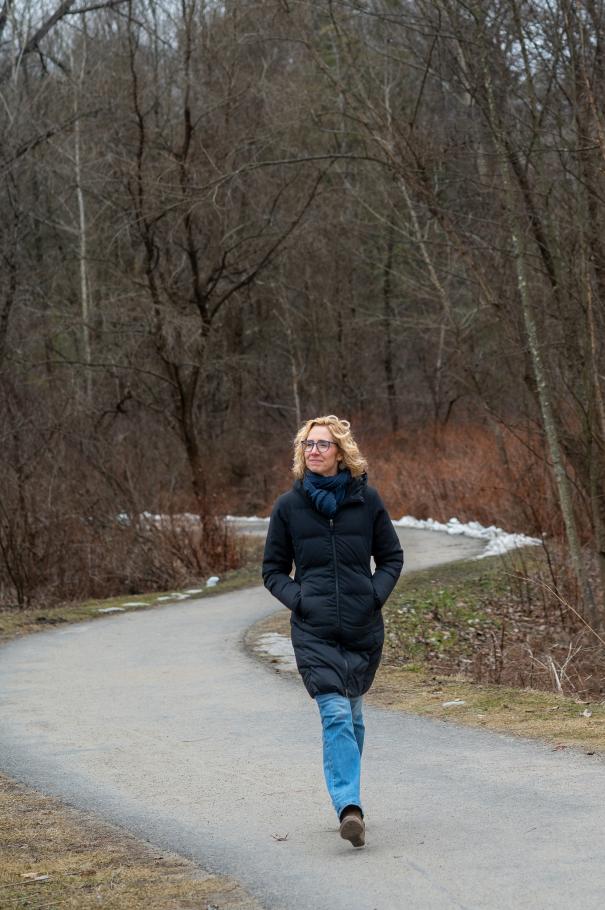
Lunchtime often involves a walk—or a nap. “It really helps to power off for a moment.” After her break, on this day, she moves the furniture around for a couple counseling session. “I’ve been doing couples therapy for only three years. It’s such a different role. The clients are in each other’s care, not in mine the way individual clients are. I aim to be outside the action. I’m a beginner in this work, which is one of the great parts of being a therapist. There are so many ways to pivot professionally.”
Caroline also works with LGBTQ+ clients over the course of a typical day. “Often they are embarking on a new way of life, test-driving their changing bodies, their evolving sexualities, working to feel more at home in themselves in a world that is often hostile. Their relational, financial and spiritual worlds can be complex, even frightening, and there is also a lot of joy and excitement. My training at Smith still feels tangible in my work all these years later, especially when it comes to holding the macro and the micro over the course of a session, working with layers of systemic oppression and identifying pathways to personal liberation.”
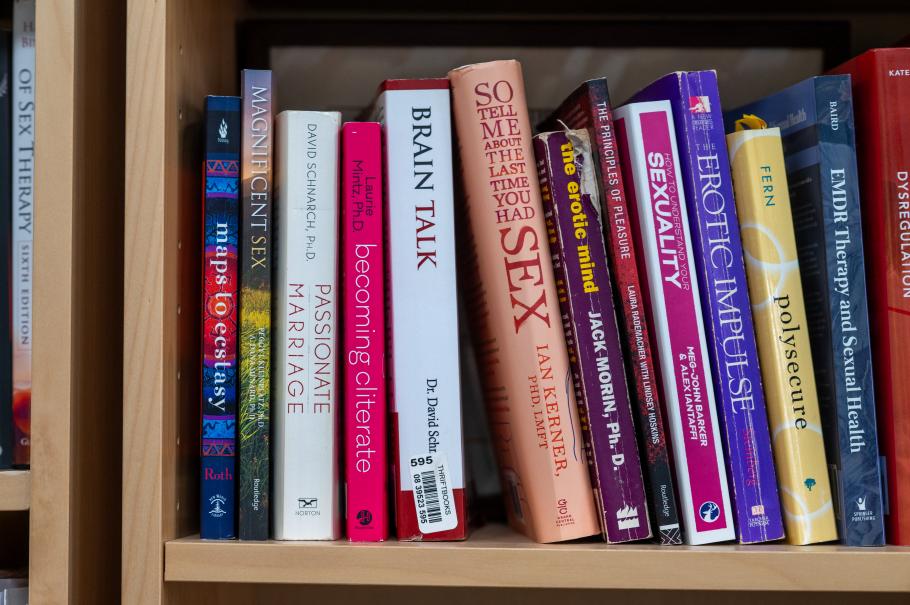
Caroline is home in time for dinner with her family (that’s not always been the case, she acknowledges), then it’s on to leading a free community support group. She spoke enthusiastically about its makeup: “The participants range in age from 18 to 80 and across the LGBTQ+ spectrum, and they’re diverse in terms of race, class and ethnic background. It’s a beautiful web of journeys.” Leading this group for the past 15 years, Caroline said, “has been a way of being a part of my community, but even more, a way to offer people who have not been heard and served access to safe, loving connection.””
Her workday done, she plops down on the couch to watch “Julia”, the Max series about another Smith College alum, Julia McWilliams Child, A.B. ’34.
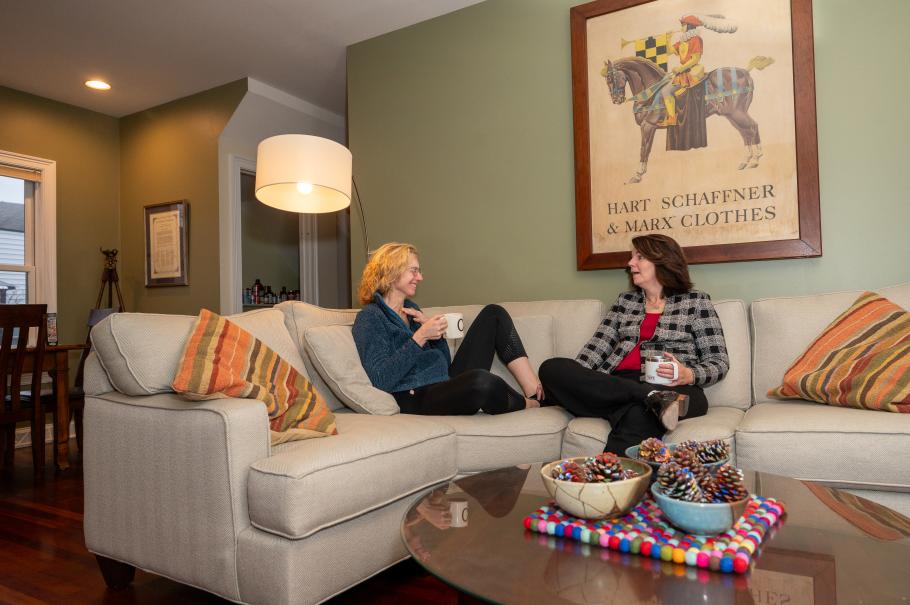
Asked how she handles the emotional demands of days like this one, Caroline said, “I have days when I feel confused or I feel the pain more. But the longer I do this and the more solid I am in my seat, the more capable and flexible I feel and the more I can stay in touch with my own optimism. And, the fact is, people can and do change! That’s so beautiful. I’m so inspired by people’s honesty, by the risks they’re willing to take to heal. I’m very grateful to be doing this work. What an amazing job!”

